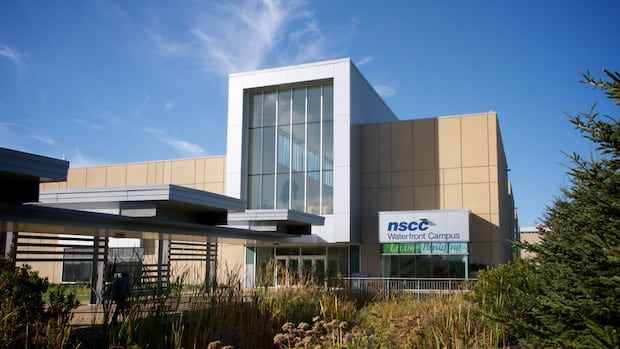N.S. gas prices jumped by 27 cents in two weeks but promised rebate relief on the way
The average Nova Scotia driver is now shelling out $12 to $14 more to fill an empty gas tank than was the case 17 days ago.
On June 30, the price per litre of self-serve regular gas in the Halifax area was $1.48.9 and diesel fuel was $1.38.3 a litre.
Now, the price of a litre of gas at the same service station is $1.76.1 and diesel comes in at $1.72.2.
That’s a hike of 27.2 cents per litre for gas and 33.9 cents for a litre of diesel fuel.
A good chunk of the price escalation at the pumps can be attributed to the federal carbon tax, which added 14.31 cents per litre of gas and 17.39 cents per litre of diesel.
“Carbon pricing is about recognizing the cost of pollution and accounting for those costs in daily decisions,” the federal government website says. “Putting a price on carbon pollution is widely recognized as the most efficient means to reduce greenhouse gas emissions while also driving innovation.”
Premier Tim Houston of Nova Scotia had a different take.
“Nova Scotians have known that the carbon tax is going to push the price of gasoline up, also the price of diesel, also the price of home heating oil, also the price of everything they purchase at every single store at the cash register,” the premier said on the eve of the carbon tax being levied.
“This is not a surprise. What is a surprise is that the federal government is punishing Nova Scotians in this manner. It’s an unnecessary tax, it will not do anything to further our shared commitment to preserving the planet, it will not do anything to further our shared commitment to fight the changing climate.”
Clean fuel regulations
The federal government’s new clean fuel standard regulations pushed the price of gas, diesel fuel and furnace oil up even further July 7.
The clean fuel regulations require gas and oil producers to gradually reduce their carbon intensity – the amount of carbon released during production and consumption of gas and diesel – by approximately 15 per cent below 2016 levels by 2030.
A spokesman in the federal environment minister’s office told The Chronicle Herald in late June that the fuel standard regulations would not have to lead to immediate hikes for consumers.
But the provincial regulator of fuel prices, the Nova Scotia Utility and Review Board, countered that the regulations, when implemented, would result in an additional 3.74 cents per litre of gasoline and 4.17 cents per litre for diesel as a clean fuel adjuster added on by the fuel refiners on July 7.
During the first week of July, then, Nova Scotians had an extra 18.05 cents per litre of gasoline and 21.46 cents per litre of diesel foisted upon them from the carbon tax and the clean fuel adjuster.
Benchmark fuel hikes in early July that then subsequently increased wholesale prices and harmonized sales tax amounts accounted for the remainder of the price hikes.
Bruce Cheadle, the spokesman in the office of federal Environment Minister Steven Guilbeault, who had said the clean fuel adjuster would not have to be added July 7, was sticking to that point late last week when he spoke with the Herald.
“We continue to maintain that the price hike of July 7 was unnecessary,” Cheadle said. “We think that time will bear that out. What we will see over the coming weeks is the value of the open market for these carbon credits that are part of the (clean fuel regulations) system and I think it will become quite evident that they are not as expensive as has been posited. There are more credits available, many credits available on the market.”
Rebates on the way
It will be proven very quickly if the clean fuel regulations are costing refineries what they say and, in turn, are passing along to the consumer, Cheadle said.
He said the federal government doesn’t have the levers to force fuel producers to subtract that clean fuel adjuster charge, but “would encourage the regulators,” including the NSUARB, to take a second look at it to determine if that adjuster charge should be removed.
“We (government) do not feel that the price increases that have been assessed are justified,” Cheadle said.
If the regulator were to rule similarly that the clean fuel adjustment increases at the pump are not justified, their removal would mean only a saving of 3.74 cents per litre of gasoline for Nova Scotians and 4.17 cents for a litre of diesel.
Cheadle has said the offsetting federal incentive rebate program that is to accompany the implementation of the carbon tax is a bigger relief for Nova Scotians.
It will result in a family of four in Nova Scotia receiving quarterly payments of $248 every three months, beginning this month.
The breakdown is $124 per individual, an additional $62 for a spouse, $31 per child under 19, and $62 for the first child in a single-parent family.
According to the federal Finance Department, the pollution pricing system that includes incentive rebates will result in a majority of Canadian households getting back more in pollution pricing rebates than they will pay in fuel charges.
Cheadle said some of those rebate cheques or bank account deposits could have arrived late last week.
“For the bulk of Atlantic Canadians, they’ll be coming on July 21,” he said.



